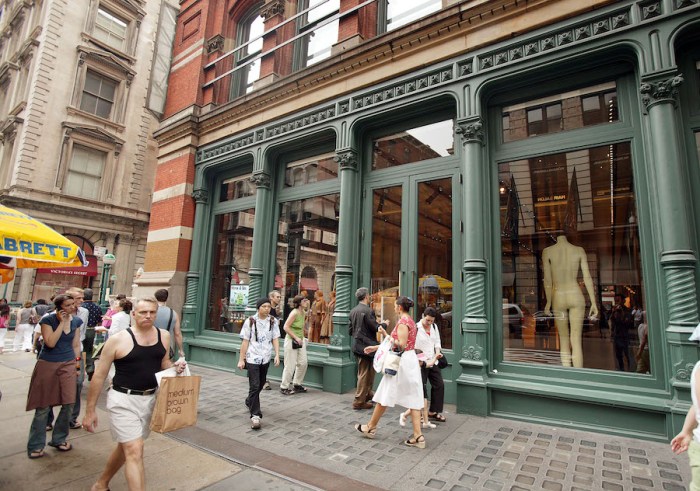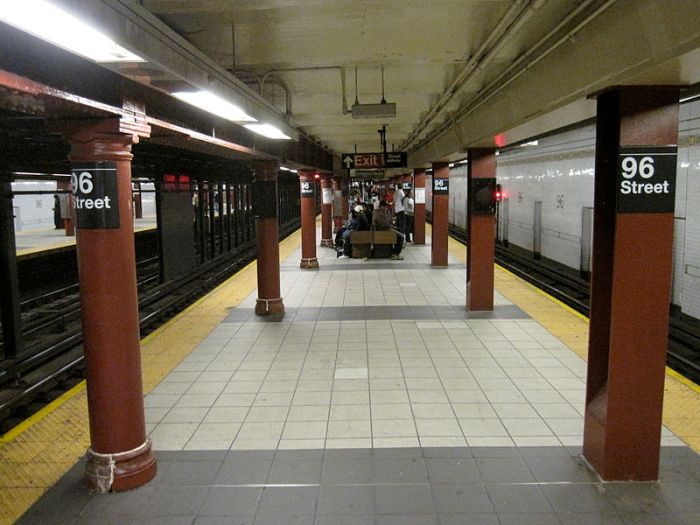A new bill aimed at stemming the growing number of shuttered “mom and pop” stores and community institutions hopes to give business owners a year-long break before they can be kicked out due to rising rents. Manhattan Borough President Gale Brewer said Monday the bill, which she is introducing with Brooklyn Councilman Robert Cornegy, would repair what she described as the lopsided way commercial leases are negotiated. “Fewer storefronts mean fewer mom and pops,” Brewer said,” which means fewer available services in the neighborhood and a lower, less interesting quality of life.”
Brewer and Cornegy announced the bill from a Halal Guys storefront, the latest brick-and-mortar space for a company that started out as just a street cart.
Mohamed Abouelenein opened up his business 25 years ago at the corner of 53rd and Sixth Avenue, and has since expanded across the country and as far as Malaysia and the Philippines.
“And that’s all because we’re so lucky to be in the great New York City,” said Hesham Hegazy, the company’s general manager.
Many of the closed businesses, which Brewer called the souls of neighborhoods, end up perpetually vacant or replaced by chains. A recent report by the Center for an Urban Future found that 2014 was the sixth year in a row that New York City saw a net increase in national chain stores. To keep New York’s small businesses around, Brewer and Cornegy’s bill would require landlords give store owners no less than 180 days warning if the rent is going up.
If an agreement on a new rent rate can’t be negotiated, either the landlord or renter can request a mediator to help negotiate a new lease. And if the mediator can’t help, the tenant can request that the lease be extended for no more than a year so they can relocate. Businesses that qualify for a year-long extension could have their lease increased up to 15 percent for that year, which Brewer said dispels any notion that the bill creates rent control or regulation for commercial lots. “Sometimes a deal cannot happen, and in those cases there’ll be an option of a one-year extension,” Brewer said, “so that you can give a successful business time to find a space.” Previous bills that have tried to do the same thing, namely the Jobs Survival Act most recently introduced in 204, requires arbitration between a landlord and a renting business owner.
Brewer said she’d like to see the city encourage the same growth from the ground up by lifting the cap on street vendors. Currently New York only licenses some 850 merchandise and 1,000 food vendors. The cap hasn’t be raised since 1981.
Pols preview new plan to keep NYC small businesses open

Chester Soria
























